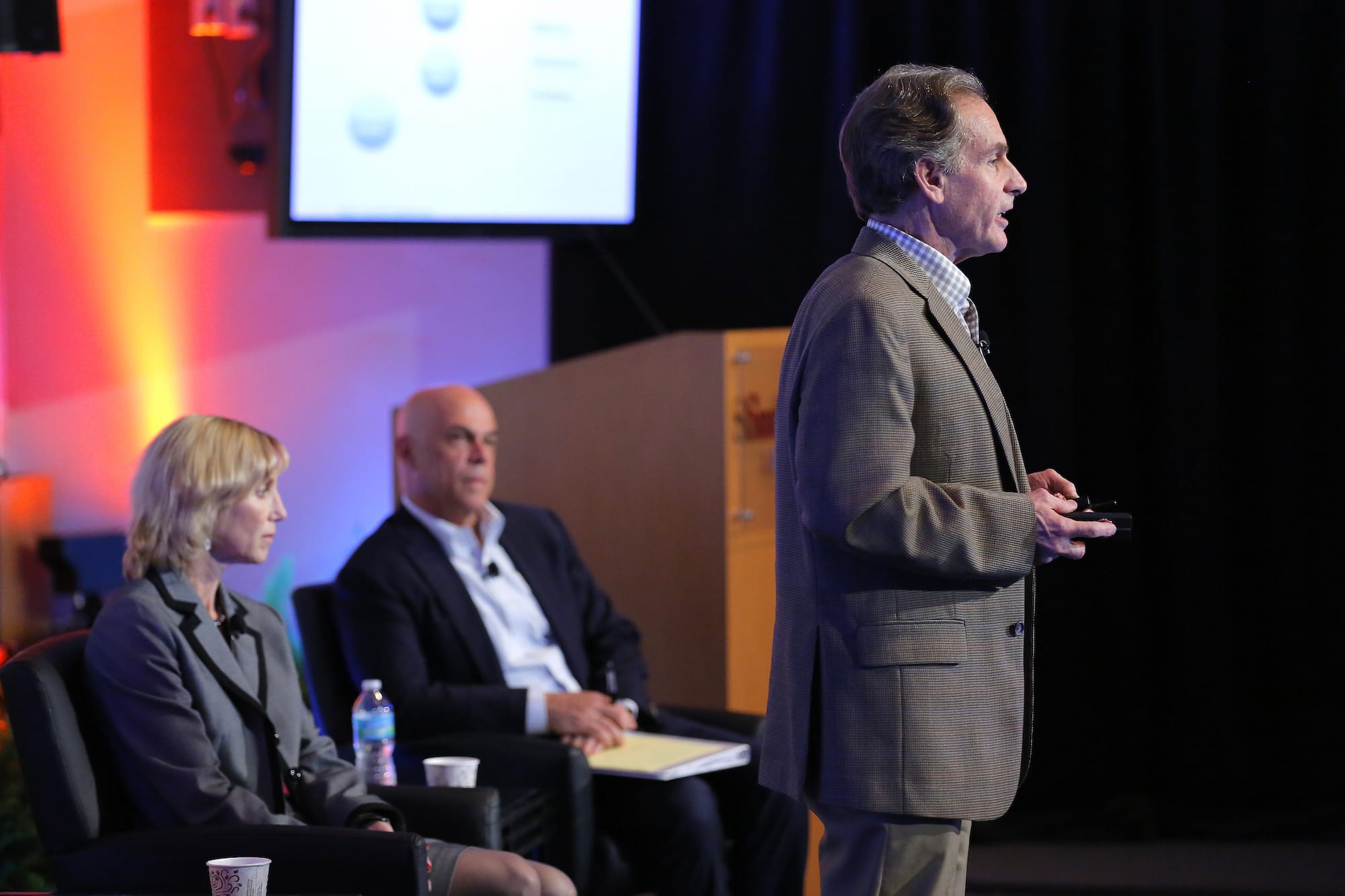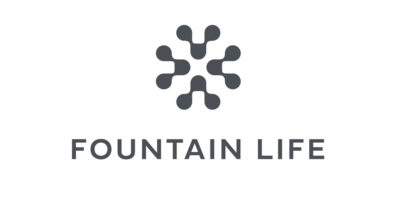
The afternoon sessions continued an action-packed day, starting with a lively presentation from Dr. Mehmet Oz, host of “The Dr. Oz Show,” on what motivates people to change their behavior. He remarked that appealing to a patient’s feelings is more successful in changing behavior than regurgitating facts. Consequently, doctors should change the way they talk to their patients with respect to chronic but preventable diseases. To him, facts should be presented in a digestible way, which allows the patient to draw an emotional connection to the information.
Dr. Sanjay Gupta, chief medical correspondent from CNN, hosted a panel discussion connecting two seemingly disparate professionals: John Chen, CEO of Blackberry, and Patrick Soon-Shiong, CEO of Nantworks and a cancer researcher pioneer. However, the two are collaborating to take personalized cancer care to new levels. Soon-Shiong’s experience with cancer genomics is being combined with BlackBerry’s specialty in secure mobile communications. Through their partnership, doctors will have immediate and secure mobile-access to a cancer patient’s genome – allowing doctors to provide personalized therapies that treat the specific gene mutation. As a result, this technology allows cancer to be treated more effectively at the molecular level..
This enlightening conversation on personalized cancer care was followed by a spirited panel discussion on the cost of life-changing drugs. John Reed from Roche Pharmaceuticals led the panel, joined by Steve Miller from Express Scripts and Lori Reilly of the Pharmaceutical Research and Manufacturers of America.
Next, Marc Siry, vice president at Comcast, examined how the media can positively impact patient engagement. Siry pointed out that a gulf exists between the media and the medical world – but that doctors can borrow from the media’s ability to appeal to people’s emotions. That’s because emotions change behaviors, and behavior impacts patient engagement and outcomes.
The next session – led by Patrick Geraghty, CEO of GuideWell and Florida Blue – furthered day one’s discussion about how employers can improve the health and wellness of their employees. He and his fellow panelists addressed the economic benefit of employee health programs, using Disney as an example of how new tactics are reaping tangible benefits.
The day ended with an eye-opening discussion on the true cost of mental illness globally. Speakers Husseini Manji, head of Neuroscience at Janssen Research, and Tom Insel, director of the National Institute of Mental Health, outlined the prevalence of mental health issues and the numerous lives lost from it each year. They discussed the need to change the stigma associated with mental health so individuals will more readily talk about it and seek treatment, as with other health issues such as heart disease or diabetes.
Thad Seymour, Jr., president of the Lake Nona Institute, wrapped up the sessions by marveling at the “fire hose” of information that had been shared. As day three dawns, this welcome deluge of data and insights is sure to continue.
Don’t forget to follow the conversation on Twitter us @LN_Institute and join the discussion at #LNIF15.



